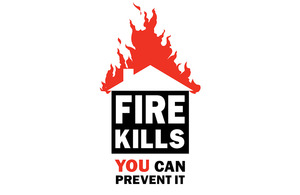Hard-wired for sound
Love to hate your smoke alarm.

Fire Kills logo
Anyone who has ever burnt their bacon or smoked in the comfort of their home will know that an accidentally triggered smoke alarm can be a frustrating experience. But with 1 in 3 battery operated smoke alarms failing in a house fire - most often because the battery has been removed - the Fire Kills campaign is reminding people that there’s a very good reason why we all hate the sound of the smoke alarm.
Evolutionary instincts
Everything about the pitch, volume, and pattern of a smoke alarm’s horn are specifically designed to trigger instinctive danger responses.
We are evolutionally hard wired to notice changes in the sounds around us. In years gone by this natural instinct gave us early warning of approaching predators, but today it means that unusual sounds like a smoke alarm or siren will set off warning signals in our brains.
With a sounder pitched at the most sensitive range of the human hearing (3,000 Hz), a triggered alarm will instantly grab the attention, while the persistent beeping means that we can’t get used to the noise and tune it out as we do with many everyday sounds. Smoke alarms set at lower frequencies or set to vibrate and flash can produce the same effect for the hard of hearing.
All smoke alarms also have to be capable of waking an adult from deep sleep, which means they must sound at a minimum of 85 decibels from 3 metres away - that’s comparable to the volume of a bus passing through your living room.
Other sounds that affect the ear in this way include:
- opera singers, who sing loudest at the frequencies where the ear is most sensitive so they can be heard over the orchestra
- vehicle reverse warnings, which caused so many noise complaints in residential areas that alternative versions have been developed with, for example, a “shh shh” noise instead
Sir Ken Knight, the Government’s Chief Fire and Rescue Adviser said:
It’s a familiar situation - burning bacon or a sneaky cigarette can set a smoke alarm off all too easily, and the noise is enough to drive you out of house and home. But that’s exactly the point of a smoke alarm - we are hard-wired to associate its sound with danger.
A matter of life and death
Never, ever remove the batteries in your alarm. It may be frustrating to find your fry-up has set it off again, but a working smoke alarm could mean the difference between life and death in a real house fire.
Prof. Trevor Cox, President of the Institute of Acoustics said:
The high pitched beep-beep-beep of a smoke alarm can be irritating when set off by accident. But what makes that sound annoying - the pitch, volume and pattern of the alarm - all trigger powerful instinctive threat responses in your brain and warn you of danger. If you’re in a real fire, this irritating sound could save your life, so trust your instincts and check your smoke alarm regularly.
Emma Harrison, RNID Director of Public Engagement said:
Fire can strike at anyone’s home, but not everyone is equally protected because people who are deaf or hard of hearing can’t rely on hearing an ordinary alarm. If you are deaf or hard of hearing, there a wide range of smoke alarms available specifically designed for you.
Background
Volume
An average smoke alarm is required to sound at 85 decibels from a distance of 3 metres - it will be much louder at close range.
Hearing protection becomes necessary in an industrial environment at 85 decibels as sustained exposure could result in hearing loss.
Other everyday noises:
| Noise | Volume in decibels (db) |
|---|---|
| library | 30 |
| normal conversation | 30 |
| average office | 60 |
| alarm clock | 70 |
| barking dog | 75 |
| smoke alarm (3 m) | 85 |
| aeroplane from a mile away | 85 |
| motorbike | 100 |
| orchestra | 105 |
| power saw | 110 |
| jet takeoff | 140 |
Pitch
Added to this, most smoke alarms sound at a frequency of around 3,000 Hz, the uppermost range of a piccolo or violin.
To see a comparison of pitch and volume of everyday noises see the hearing loss audiogram
For more information on smoke alarms for the hard of hearing visit the Action on Hearing Loss website